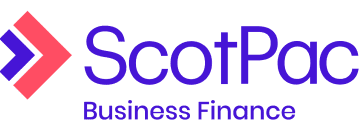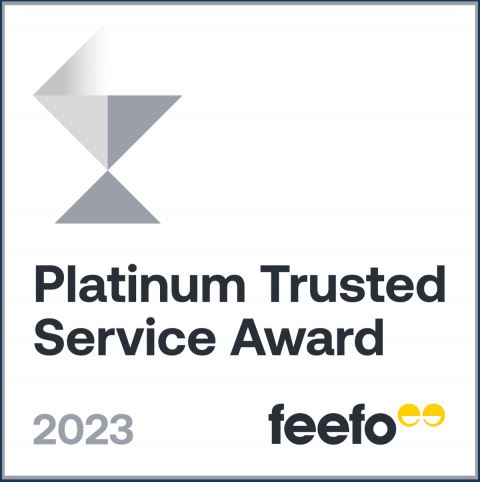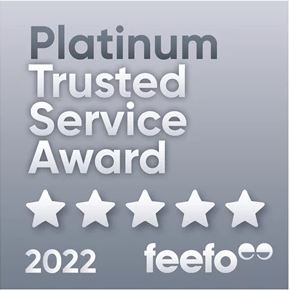Asset finance is a type of commercial financing that helps businesses acquire essential assets, such as vehicles, equipment and machinery, by spreading the cost over a set period, typically between one and five years. This allows businesses to get the resources they need without large upfront costs.
Why compare commercial finance with Savvy?
100% free service
It won't cost you a cent to compare a range of commercial finance options through Savvy, enabling you to come back at any time.
Trusted lending partners
You can compare finance offers through a range of trusted Australian providers, giving you more confidence in the process.
Online quote process
You can fill out our simple online form and we'll get to work comparing offers from our commercial partners to find the best for your business.
Business lenders you can compare







What are the different types of asset finance?
In Australia, companies have a variety of asset finance options available:
- Chattel mortgage: a chattel mortgage is a type of loan that allows businesses to own the asset from the start. You can claim depreciation and potentially recover GST on the purchase price in your next BAS.
- Finance lease: with this option, the lender owns the asset, and the business leases it with the option to purchase at the end of the term. Lease payments are tax-deductible, and you take ownership when the lease concludes.
- Operating lease: this arrangement can be ideal for leasing vehicles for shorter-term use, allowing businesses to use then return them at the end of the term without any ownership obligations. Maintenance costs can sometimes be bundled into monthly payments, making this a cost-effective option for short-term needs.
With these options, businesses can choose how they finance assets based on their tax objectives, ownership preferences and operational requirements.
What assets can I cover with asset finance?
Asset finance allows businesses to obtain nearly any type of equipment or asset required for daily operations, making it suitable for a wide range of industries, from construction and agriculture to IT, healthcare and retail. This includes:
- Vehicles: cars, trucks, vans and commercial fleet vehicles can be financed to keep your business moving.
- Heavy machinery: equipment for construction, mining, manufacturing and other industrial applications, including excavators, cranes and forklifts.
- Agricultural equipment: farm machinery like tractors, harvesters and irrigation systems, ideal for agribusinesses.
- Medical and dental equipment: specialist devices, diagnostic tools and machinery for healthcare facilities.
- Office equipment and technology: computers, printers and IT infrastructure for day-to-day operations.
- Point-of-Sale systems and cash registers: essential for retail and hospitality sectors to manage sales and transactions.
- Security systems: alarms, cameras and surveillance equipment for office or site safety.
- Green assets: solar panels, energy-efficient machinery and electric vehicles.
You can finance either new or second-hand equipment and vehicles, giving your business a broader range of options while potentially saving on upfront costs. However, be aware that lenders often set conditions for second-hand assets, such as a minimum valuation or age limit, especially for vehicles.
What do asset finance brokers do?
Asset finance brokers help businesses secure funding for equipment, vehicles and machinery by connecting them with a wide range of lenders. Unlike going directly to a single lender, brokers offer access to multiple finance providers, increasing your chances of finding the best deal with competitive rates and flexible terms.
At Savvy, our expert brokers handle the entire process – from comparing loan options to managing paperwork and negotiating with lenders – saving you time and effort. We work with an extensive lender panel, ensuring you get tailored solutions that meet your business needs.
Our brokers are also on hand to help you understand lender requirements and avoid common pitfalls that could delay or affect your application. Their in-depth knowledge of the market allows them to match you with products that offer real value, whether you’re upgrading equipment, purchasing vehicles, or expanding operations. By creating lender competition, brokers help secure better deals for your business.
The benefits of asset finance
What our customers say about their finance experience
What our customers are saying


Savvy is rated 4.9 for customer satisfaction by 94 customers.
How to apply for asset finance with Savvy
Commercial loan eligibility and documentation
Age
You must be at least 18 years of age
Residency
You must be an Australian citizen or permanent resident (or, in some cases, an eligible visa holder)
ABN registration
Have an ABN registered in your name (available from as soon as one day after registration)
Usage
Meet commercial asset usage requirements (at least 51% of total usage)
Credit score
You must meet your lender’s minimum personal and business credit score requirements
Commercial asset
The asset you choose to buy must meet your lender’s requirements in relation to its type, age and condition
Personal information
Such as your full name, date of birth, address and contact details
Driver's licence
Front and back (or another form of government-issued ID)
Assets and liabilities
Information about your business’ assets and liabilities, as well as those in your name
Asset details
Information about your asset, including its model and age, is worthwhile having on hand
Business statements
Business Activity Statements (BAS) and business bank statements may be requested, but not always
More of your common asset finance questions
Yes – new businesses can access asset finance, though lenders may consider them higher risk due to the lack of an established trading history. This can lead to stricter eligibility criteria, but there are still flexible options available.
Low doc asset finance is one option that can be particularly useful for new or fast-growing businesses that don’t have extensive financial records, instead requiring alternative evidence of business activity, such as recent bank statements or an income declaration.
Yes – some lenders may offer asset finance terms shorter than 12 months, making it a viable option if you only need equipment for a limited time or a specific project. Short-term asset finance can be ideal for temporary projects or seasonal equipment needs, offering the flexibility to adjust your financing to the asset's expected usage period.
Asset valuation is often part of the finance approval process, particularly for high-value items. Lenders may need a professional valuation to determine the asset’s current market value, ensuring it provides adequate security for the loan.
This step is typically straightforward, and in many cases, the lender will arrange the valuation for you – though you will typically need to pay an additional valuation fee.
Yes – businesses with past credit issues can still qualify for asset finance. Savvy partners with multiple lenders, including those who specialise in providing options for borrowers with less-than-perfect credit histories.
These lenders understand that businesses may face challenges and offer products that allow businesses to continue growing and acquiring essential assets. Our consultants can work with you to find an option that aligns with your financial situation, even if you’ve had setbacks in the past.
Generally, a deposit isn’t required for asset finance, as many lenders offer up to 100% financing. This means you can finance the full cost of the asset, preserving your business’s cash flow for other expenses. However, placing a deposit can help reduce loan repayments and interest over time, making it an option worth considering if you have the funds available.
Yes – most lenders allow you to choose your supplier, so you can work with a trusted source or find the best price. Whether you’re purchasing vehicles, machinery or specialised equipment, choosing your own supplier can give you greater control and flexibility over the asset quality and purchase price.





